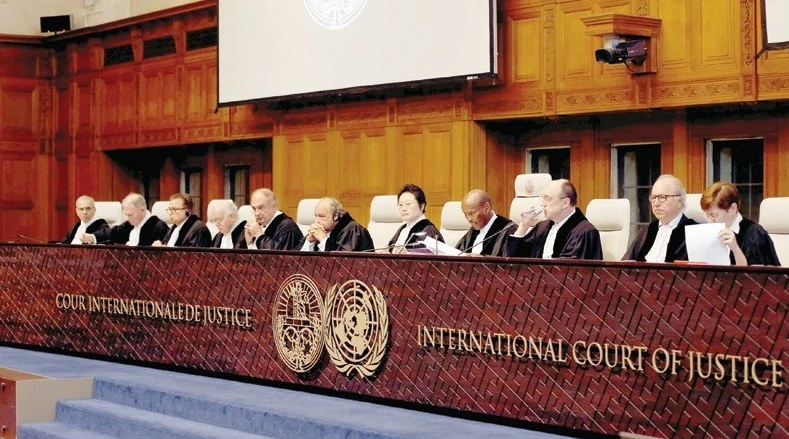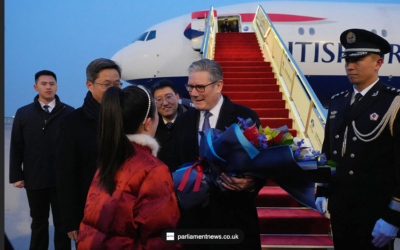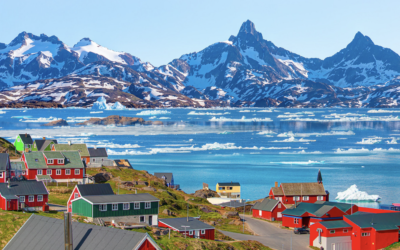In a world where atrocities leave lasting scars on nations and communities, the International Court of Justice (ICJ) serves as the primary judicial organ of the United Nations, entrusted with interpreting and upholding the 1948 Genocide Convention, created in response to the horrors of the Holocaust. The ICJ’s mission to prevent genocide and hold states accountable for violations remains a cornerstone of international law. Yet in an age of geopolitical complexity, questions persist about the Court’s capacity to translate legal principles into justice.
The Convention on the Prevention and Punishment of Crime, also known as the Genocide Convention is an international treaty that was adopted by the UN in 1948, addressing humanitarian issues, which indicated that the atrocities committed especially during the holocaust can never be committed again. In the convention, the UN recognized that “genocide is an international crime which entails the national and international responsibilities of individual persons and states”. Since then, the convention has been accepted by international communities worldwide.
According to the convention, genocide is defined as any of the following acts intended to destroy in whole or in part, a national, ethnic, racial, or religious group: killing, causing severe mental or physical harm, subjecting the group to living conditions intended to cause physical destruction, imposing measures intended to prevent the birth of children in the group, and forcibly transferring children of the group to another group.
The ICJ isn’t just about punishment. It intervenes to prevent the worsening of ongoing genocide, using provisional measures as legal measures to stop any violence. In addition, its rulings hold countries accountable for their actions. For instance, in 2007, the court handled the Serbia vs. Bosnia case. There, the court found that Serbia didn’t do enough to stop the genocide in Srebrenica. However, it did not hold Serbia directly responsible for the slaughter of 8,000 Bosnian Muslim men and boys. That decision revealed how difficult it is to prove a state’s intent to destroy a people. This shows that there are several complexities when it comes to legal theory, and this affects the ICJ’s work in holding nations accountable.

The ICJ deals with several issues between nations, from settling disputes over land and resources that could potentially lead to violence and genocide, to issues of illegal international arrests. It has several contentious cases and pending cases to be resolved. An example of such a case occurred in 2019, when The Gambia brought a case against Myanmar, alleging genocide against the Rohingya minority. Over 700,000 Rohingya were chased into Bangladesh during a 2017 military crackdown. UN investigators documented several atrocities like mass killings, rape, and village burnings. In 2020, the ICJ ordered Myanmar to take “all measures within its power” to protect the Rohingya. This was a legally binding ruling And yet, five years later, the people of Rohingya remain refugees, and Myanmar’s military has ignored the court’s rulings. This case has had 7 states intervening and yet remains pending. The case reveals both the power and limits of the ICJ. Its rulings carry moral authority, but the cooperation of the state or states in question is required, often shielded by global politics.
Another such case involves the recent accusations of January 2024. South Africa accused Israel of genocide in Gaza. The accusation cited the deaths of over 35,000 Palestinians as reported by Gaza’s health authorities, and the displacement of 1.7 million people. The International Court of Justice delivered an interim ruling validating various measures requested by South Africa to prevent Israel from committing alleged genocidal acts. Israel was ordered to take all measures to prevent genocidal acts, prevent and punish incitement to genocide, and report back on its actions within a month. The ICJ, however, did not order a ceasefire.
It marked the first time Israel, a signatory to the Genocide Convention, faced such allegations at the world’s highest court. This case has opened the eyes of the world to the toll of the war on Palestinians and further depicts the complexities in the ICJ’s role in preventing and punishing genocide.

The main problem the ICJ faces is not its ability to pass judgment or put preventive measures. It’s compliance. The ICJ does not prosecute an individual. Instead, it settles disputes between states, and an accused state can reject the ICJ’s rulings. Its rulings are legally binding and recognized by international law, but it cannot enforce these rules because it has no military or economic leverage. For instance, in 2022, when Russia invaded Ukraine, the ICJ ordered Russia to halt. However, this order has gone unheeded, despite the court’s findings of plausible evidence of genocide being misused to justify war. To date, the conflict is ongoing, depicting the significant gap between legal authority and real-world power.

Despite the difficulties it faces in enforcing its rulings, the court’s voice still holds water. When it rules, it can ginger governments to act, rally aid groups and NGOs, and even reshape how history remembers a conflict. When it speaks, the court forces the world to open its eyes to and recognize atrocities being committed by certain nations, an example being the current global discourse on the Russia-Ukraine war, and the Israel-Gaza conflict. Laws mean little without the humanity behind them. The ICJ plays a role in encouraging global conversations about these issues, leading to their prevention and resolution.
The ICJ is neither the magic solution nor a powerless symbol. It is the voice of reason, and a symbol of hope, however fragile. It navigates the complex space between laws and politics, where justice is often delayed, diluted, or denied. Its existence matters, because it hammers into international conscience that genocide is not just a moral failing, but a legal and humanitarian crime. As survivors of past genocides age and new conflicts arise, the court’s role as arbiter of accountability remains vital.
/



